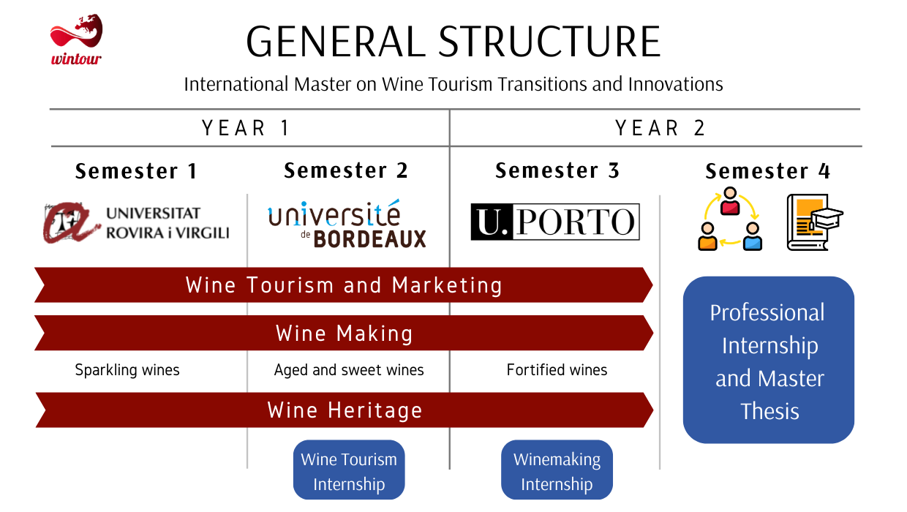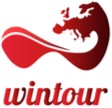The International Master on Wine Tourism Transitions and Innovations (WINTOUR) is a unique educational joint programme resulting from an established track of collaborations among three leading European universities for higher education training in Tourism, Oenology, and related fields: Universitat Rovira i Virgili -coordinator (Tarragona, Spain), Université de Bordeaux (France) and Universidade do Porto (Portugal), all of them located in attractive areas recognised as UNESCO World Heritage Sites with a long tradition on wine production.
The objectives of the WINTOUR Programme are:
- To prepare broadly trained, highly adaptable and qualified professionals in wine tourism, promoting innovative, digital, sustainable and inclusive developments.
- To provide future professionals with multi-disciplinary and multi-sectorial knowledge and training to increase their skills and competences on sustainable wine making, wine tourism management, as well as wine culture and heritage.
- To promote innovative, digital, and sustainable developments on wine tourism industry, preserving the cultural heritage of the wine regions.
- To promote high-quality practical training in entrepreneurship and company management by involving the students in internships in the non-academic sector.
- To ensure the effective integration and networking of students within the socio-cultural and professional environment of the places where they will receive their training, promoting equal opportunities, inclusion, and diversity.
- To stimulate the full alignment of wine tourism professionals with the United Nations Sustainable Development Goals.
- The WINTOUR master aims to guarantee the principle of equal opportunities for all and to strengthen the universities' social commitment and respect for diversity. The programme, thus, is open to applicants with special needs. In case of selection, the Consortium can give support to these students (with or without Erasmus Mundus scholarship) with disabilities (e.g., long-term physical, mental, intellectual or sensory impairments) by acquiring special items or services, such as assistance by third persons, adaptation of work environment, additional travel/transportation costs, etc.

Know more about the duration, structure and academic modules of the master in the section STRUCTURE & CURRICULUM.

